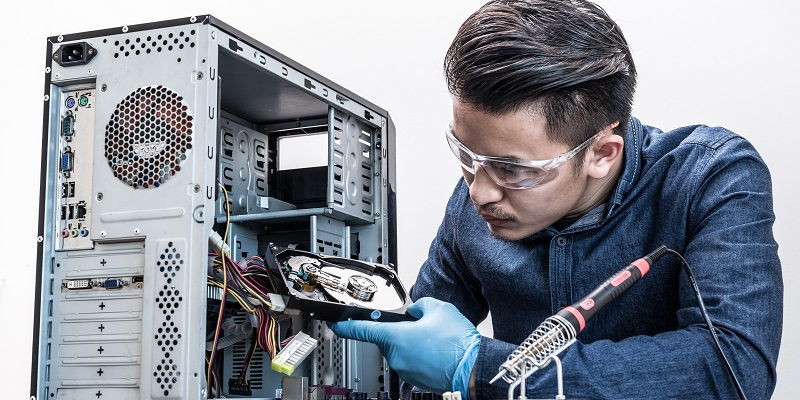The global shortage of AI GPUs has become a pressing issue for the technology industry, with TSMC, the world’s leading semiconductor manufacturer, acknowledging that the scarcity is expected to persist for up to 1.5 years. TSMC’s chairman, Mark Liu, revealed that the surge in GenAI development, which requires substantial computing capabilities, has led to an overwhelming increase in orders from NVIDIA and its partners. This article delves into the reasons behind the shortage, the impact on the AI sector, TSMC’s plans to address the issue, and the collaboration between industry giants.
The Rise of GenAI Development Drives GPU Demand
The significant boost in AI GPU orders can be attributed to the rise of GenAI development, a field that demands immense computing power. Mark Liu explained that this evolution in AI technology has fueled the demand from NVIDIA and other companies for advanced GPUs capable of handling the complex calculations involved in GenAI development.
The Bottleneck in TSMC’s Supply Chain
Despite its leading position in the semiconductor industry, TSMC has encountered challenges in meeting the surging demand for AI GPUs, particularly in CoWoS packaging. CoWoS packaging, a technology crucial for AI GPU production, has become a bottleneck in the supply chain, hindering TSMC’s ability to fulfill customer needs.
TSMC’s Temporary Solution to Support 80% of Customer Needs
Recognizing the urgency of the situation, TSMC aims to temporarily support approximately 80% of customer needs. Although this may fall short of full demand, TSMC views it as a temporary phenomenon that should be alleviated within the next 1.5 years. To achieve this, TSMC plans to expand its advanced chip packaging capacity and enhance its overall production capabilities.
TSMC is witnessing unprecedented demand for its CoWoS packaging services, which are integral to AI GPU production. The company has reported receiving three times the usual number of orders for CoWoS packaging, reflecting the overwhelming demand for AI GPUs.
To address the ongoing shortage, TSMC plans to upscale its facilities and significantly increase production by 2024. However, experts suggest that the shortage is expected to persist for an extended period. TSMC’s ambitious expansion plans indicate a long-term commitment to meeting the escalating demand for AI GPUs.
NVIDIA’s Collaboration and Dominance in AI GPU Production
NVIDIA, a prominent player in the AI GPU market, is collaborating closely with TSMC to secure the necessary components for their GPU production. The company has occupied a significant portion of TSMC’s CoWoS packaging facilities with large orders. Furthermore, NVIDIA is partnering with Intel and Samsung to ensure a steady supply of components required for AI GPU production.
Samsung’s Acquisition of HBM Memory Orders from NVIDIA
In its bid to strengthen capabilities for 2.5D packaging, Samsung has acquired a substantial share of HBM (High Bandwidth Memory) orders from NVIDIA. This strategic move allows Samsung to take responsibility for the packaging of HBM memory, an essential component of AI GPUs.
Intel Foundry’s Efforts to Meet NVIDIA’s Packaging Needs
Intel Foundry, another key player in the semiconductor industry, has been working on improving its packaging facilities to cater to the growing demands of various businesses, particularly NVIDIA’s. As NVIDIA’s collaboration expands, Intel Foundry recognizes the need to enhance its packaging capabilities to ensure a consistent supply of components.
Forecasted Revenue Growth Amidst Supply Constraints
Both AMD and NVIDIA have projected significant revenue growth from the booming AI sector. However, the persistent supply constraints and the time required to establish new fabrication facilities and plants may impede their goals. The industry awaits a resolution to the shortage to fully leverage the AI market’s potential.
The shortage of AI GPUs has created a challenging situation for TSMC and other key players in the industry. TSMC’s acknowledgment of the issue, along with its plans to expand capacity, highlights its commitment to meeting the escalating demand. However, with the shortage expected to persist for up to 1.5 years, collaboration between companies like NVIDIA, Intel, and Samsung becomes critical. As market leaders work towards minimizing the scarcity, the AI sector eagerly awaits an equilibrium between supply and demand to unlock its full potential.

